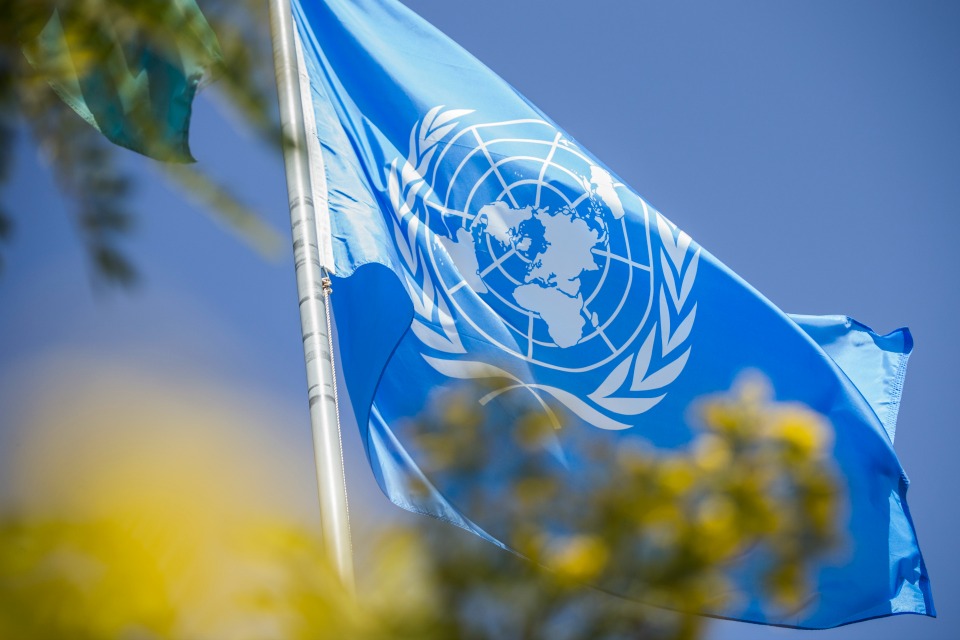"Not intent simply with killing innocents, terrorists seek to destabilise, demoralise, and disrupt our way of life."
Statement by Ambassador Matthew Rycroft, UK Permanent Representative to the United Nations, on Critical Infrastructure.

Thank you, Mr President
I am most grateful for the analysis shared by our briefers this morning. And I join others in paying tribute to you, Mr Minister, for your leadership in bringing this important issue to our attention.
Over the past decade, the terrorist threat has evolved. We face increasingly complex threats as terrorists acquire new knowledge and new technology. Not intent simply with killing innocents, terrorists seek to destabilise, demoralise, and disrupt our way of life.
Critical infrastructure, be it a transport system, a communications hub, or a power grid represents an attractive target for these sinister actors. The fact that those responsible for the attack on the Brussels Metro and airport last March had also invested time in surveillance of a Belgian nuclear scientist should concern us all. We must redouble our vigilance to ensure that we are ready to defend the systems that allow our societies to function.
So we wholeheartedly welcome the action taken by this Council today in adopting resolution 2341. That resolution raises the profile of this important issue; it calls on states to improve preparedness; and it strengthens our cooperation in protecting the security of our people and our critical infrastructure.
If we are to truly tackle this threat, I believe we need to focus, Mr President, on three things: preparation, protection and partnerships. So firstly, preparation
It’s vital that plans for protecting our critical infrastructure are comprehensively developed, maintained and tested. We echo the call of the resolution for states to develop their own strategies to prepare and respond to any attack.
Threats to our infrastructure can come from many sources: terrorism, criminality or natural hazards. In reducing the risk to our infrastructure, the United Kingdom takes an ‘all-risks’ approach. That means developing plans that can be used to respond to many types of disruption or threats to life. Measures taken by states to prevent unlawful or criminal interference in our infrastructure can also serve to help prevent terrorist attacks. It’s in part because of the strong measures we have taken that terrorist threats to our infrastructure are being mitigated.
Secondly, protection. The threat to some elements of our national infrastructure may be aspirational, but there is one area where the threat is very real and very high: and that is transport. As recent reports from the UN Secretary General show, there continues to be a serious and enduring threat from international terrorism to our transport networks – specifically to civil aviation.
Three billion passengers reach their destination by air every year. This past year has offered us too many reminders of the risks they face. Attacks on airports in Brussels and Istanbul. The destruction of the Russian Metrojet aircraft over Sinai. The explosion on board a Daallo Airways flight from Mogadishu.
It was to combat these threats that the United Kingdom authored resolution 2309, and today echo its call on States to work with the International Civil Aviation Organisation. Working together we can ensure not only that international security standards keep pace with the terrorist threat, but also, crucially, that they are implemented effectively on the ground.
Finally, partnerships. The critical infrastructure that we need to protect is largely owned by the private sector, and can also form part of complex international networks and supply chains. Preparation and protection of infrastructure are simply good intentions if we fail to work across sectors to achieve them.
Each side has its part to play. Private companies are responsible for ensuring that their infrastructure is protected and that essential services are maintained, just as governments have an obligation to ensure that industry is managing these risks fully and responsibly.
And as this resolution identifies, stronger international partnerships are vital at a time when the functioning of infrastructure relies on cross border networks and supply chains. The sharing of information, early warning networks and expertise will strengthen our common approach.
Mr President,
This Council needs to stay abreast of the evolution of the terrorist threat, and to respond to it. Just as we act to prevent conflict, we should also act pre-emptively to prevent terrorism. Today, we have put another building block in place to strengthen our common effort. Because of our efforts, terrorists intent on stirring chaos have another hurdle to cross. Because of our efforts, our societies are a little safer than they were yesterday.
Thank you.